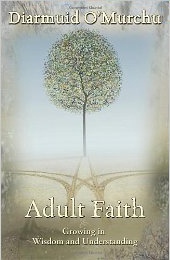I noticed on a forum yet again reference to 'implied hierarchies' ... how we need special training, rituals, meditation, special potions and so forth to advance to the next level of 'spiritual awareness'. And worst of all, how our egos are inhibiting us from getting 'there'.
All of which implies, or explicitly states that we poor humans are 'less than' some perceived higher authority, spirit, God etc.
 I was chatting to a photographer today who's quite 'spiritually aware'. He's up to speed, so to speak, with the intuitive, artistic dimensions to life. In fact he spoke in terms of waves, and how we can build them (but not strictly from a quantum mechanical perspective -- but I digress).
I was chatting to a photographer today who's quite 'spiritually aware'. He's up to speed, so to speak, with the intuitive, artistic dimensions to life. In fact he spoke in terms of waves, and how we can build them (but not strictly from a quantum mechanical perspective -- but I digress).

Picked up an interesting book at a friend's place -- Diarmuid O'Murchu's "Adult Faith: Growing in Wisdom and Understanding"
I've known this a long time, but I need to keep reminding myself
The Truth will most definitely NOT set you free.
Think about it. You're driving along and you find a billboard with "The Truth" written on it. Does it set you free?
Hardly.
No, the Truth, in any form, in any book, will NOT set you free, but living your truth certainly will.
[update, October, 2016: see below]
Over the years I've come to more fully appreciate the extent to which many people seek refuge in illusory ideals ... be it religious perfection, or scientific certainty.
Some years ago during my avid-reading phase when I couldn't wait to get home from work to read more, or postponing going to work in order to read, I came across one quote which has stuck with me ever since.
"Spontaneity knows its own order."
It's a quote from one of Jane Roberts' Seth books, which I highly value as wise, profound sources of information into the deeper rhythms and systems of life.
 I was chatting to a photographer today who's quite 'spiritually aware'. He's up to speed, so to speak, with the intuitive, artistic dimensions to life. In fact he spoke in terms of waves, and how we can build them (but not strictly from a quantum mechanical perspective -- but I digress).
I was chatting to a photographer today who's quite 'spiritually aware'. He's up to speed, so to speak, with the intuitive, artistic dimensions to life. In fact he spoke in terms of waves, and how we can build them (but not strictly from a quantum mechanical perspective -- but I digress).

